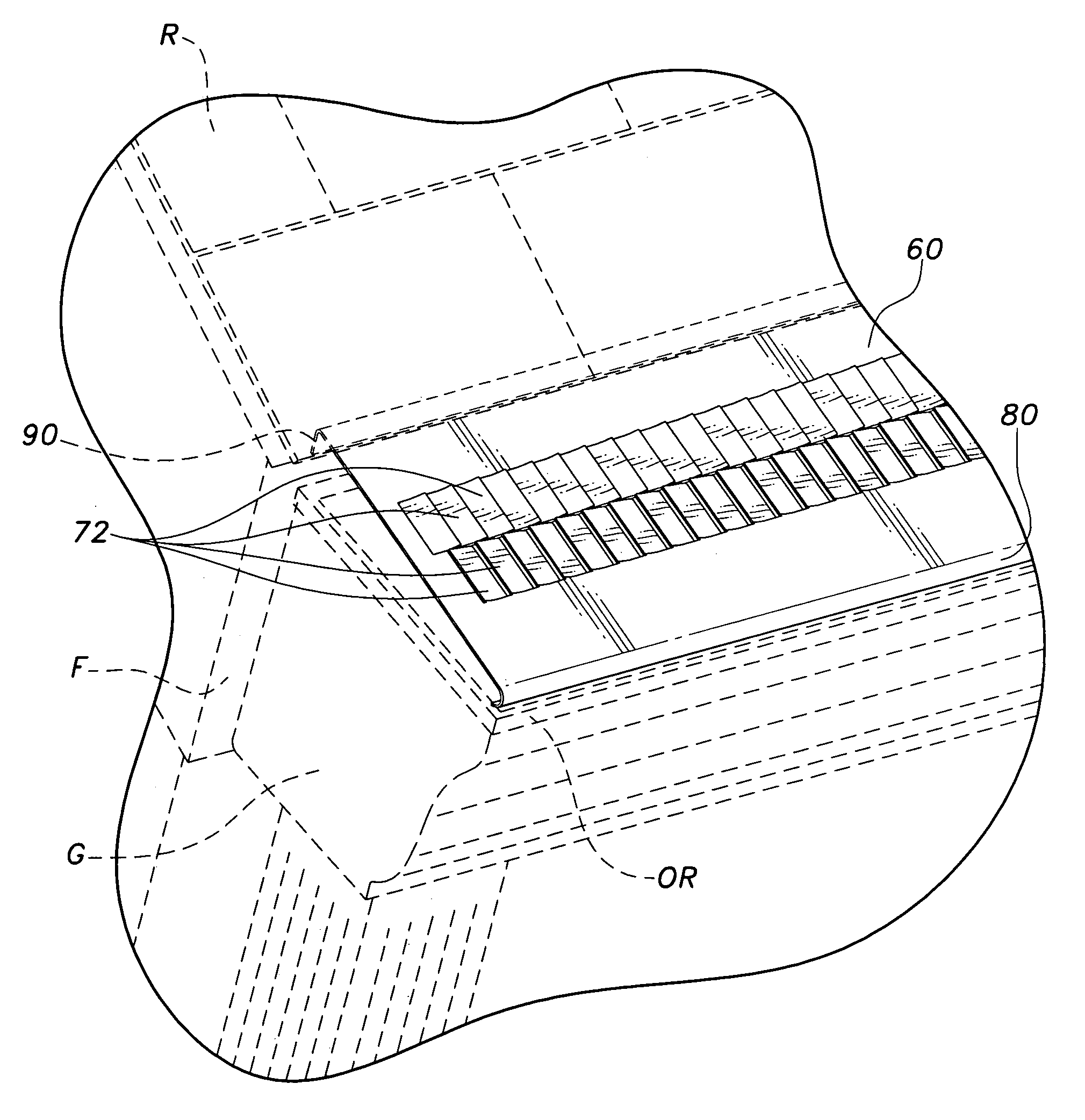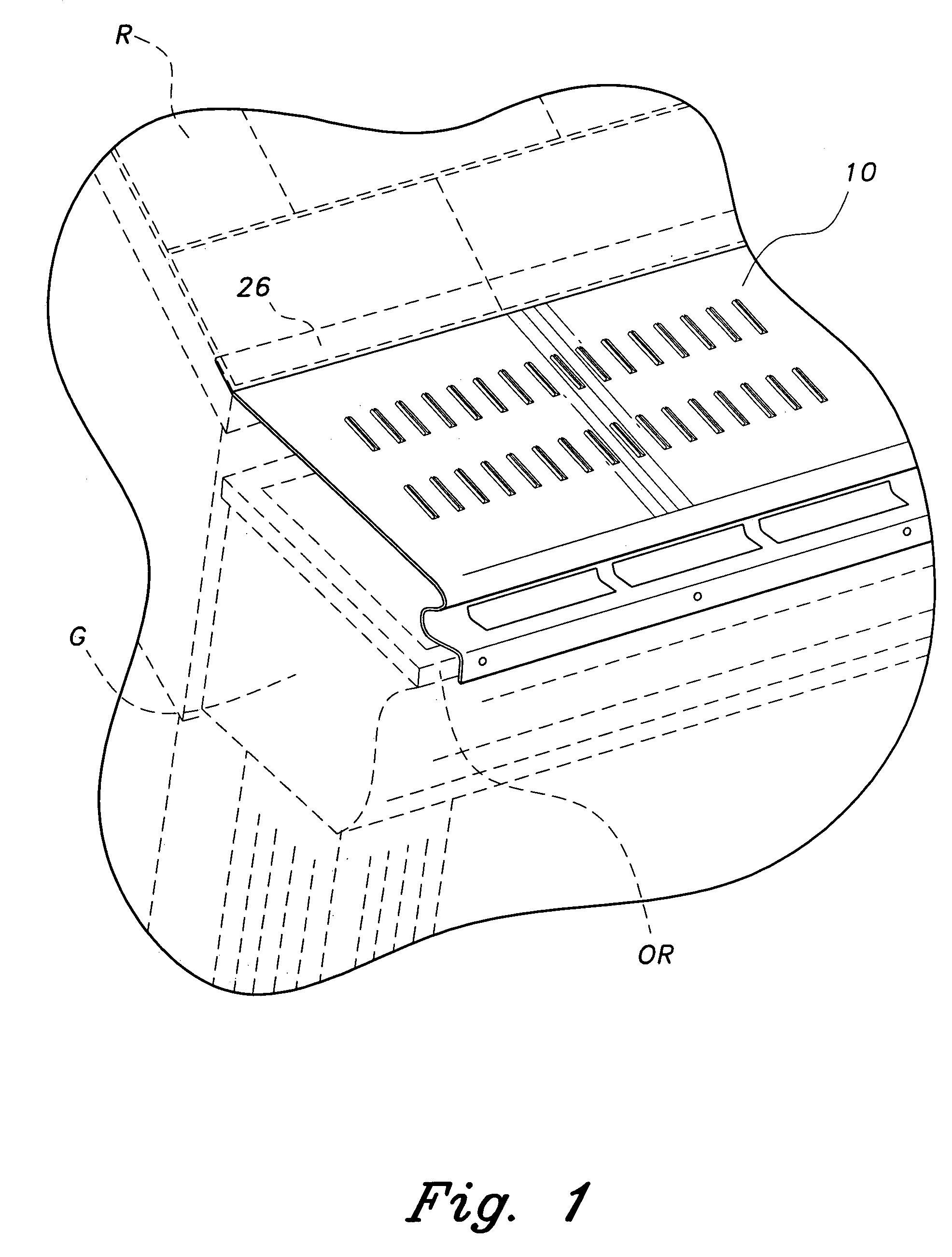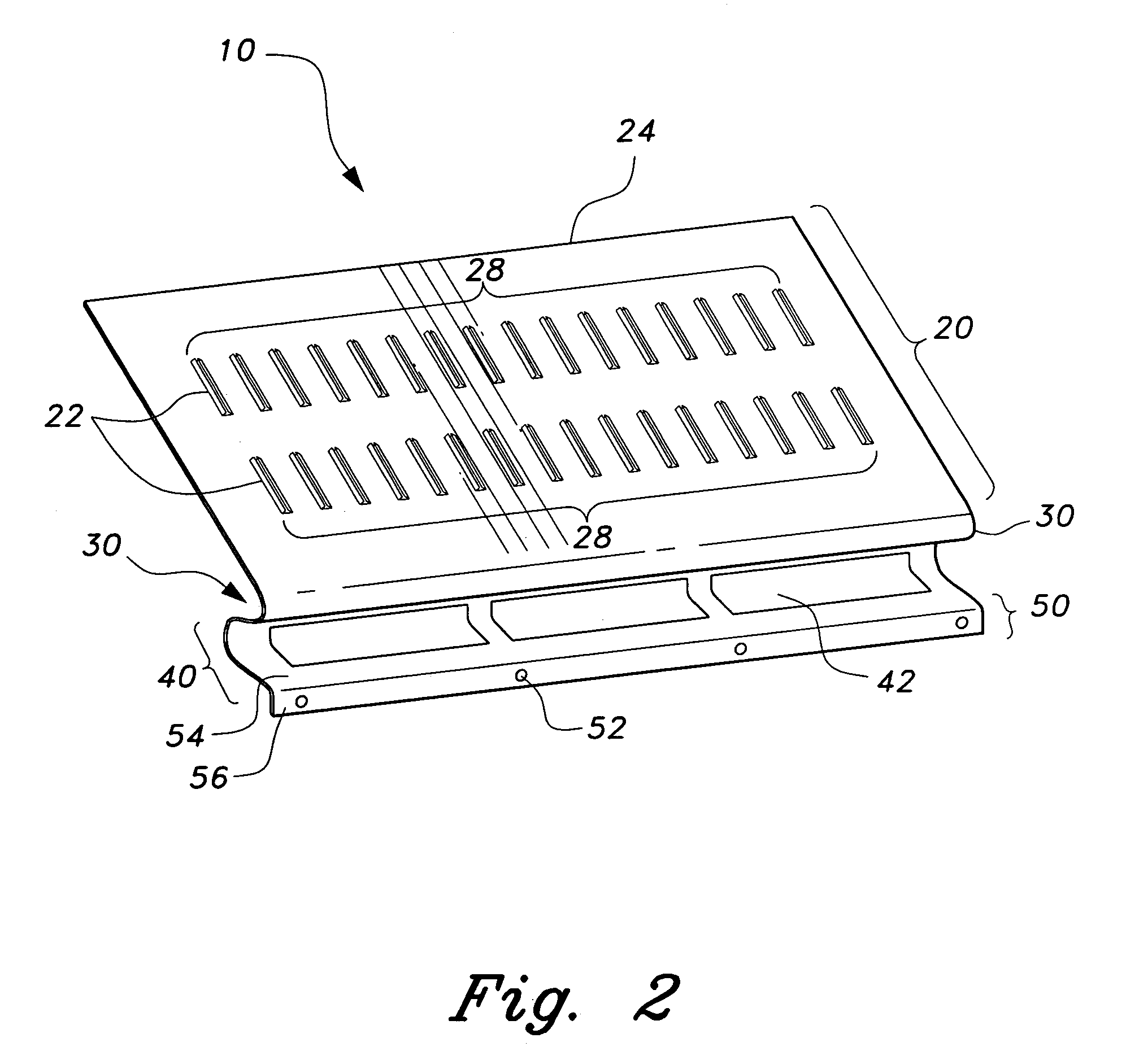Leaf guard for gutters
a gutter cover and leaf guard technology, applied in the field of gutter covers, can solve the problems of poor installation quality, bees and other insects nesting in the gutter cover, and the disadvantages of the prior art gutter cover,
- Summary
- Abstract
- Description
- Claims
- Application Information
AI Technical Summary
Benefits of technology
Problems solved by technology
Method used
Image
Examples
first embodiment
[0027]As shown in FIGS. 1–3, the leaf guard for gutters 10 is formed from an elongated sheet of rigid material into four sections—a planar section 20, a curved nose section 30, a trough section 40 and an outer lip section 50.
[0028]The planar section 20 is substantially flat with one or more rows 28 of elongated slits 22 aligned parallel to its roof-side edge 24. More preferably, the leaf guard 10 includes at least two rows 28 of elongated slits 22. Each slit 22 is oriented perpendicularly to the roof-side edge 24. The preferred length of each slit 22 is between ¼ inch and about 2 inches. The preferred width of each slit 22 is between about {fraction (1 / 32)} inch and about ¼ inch, preferably about {fraction (1 / 16)} inch, just wide enough to allow the flow of enough water through the slits in order to disrupt the activity of any insects. The slits 22 are evenly spaced with a uniform distance of between about 1 inch and about ¼ inch separating each slit 22 from each immediately adjacen...
second embodiment
[0037]As shown in FIGS. 4–6, the leaf guard for gutters 60 is formed from an elongated sheet of rigid material into three sections—a planar section 70, an inwardly bent connection section 90, and a curved nose section 80.
[0038]The planar section 70 is substantially flat with one or more rows 78 of elongated slits 72 aligned parallel to the planar section's 70 roof-side edge 74. The roof-side edge 74 of this embodiment is the line separating the planar section 70 and the inwardly bent connection section 90. The roof side edge 74 runs along the length of the leaf guard 60. More preferably, the leaf guard 60 includes at least two rows 78 of elongated slits 72. Each slit 72 is oriented perpendicularly to the roof-side edge 74. The preferred length of each slit 72 is between about ¼ inch and about 2 inches. The preferred width of each slit is between about {fraction (1 / 32)} inch and about ¼ inch, preferably about {fraction (1 / 16)} inch, just wide enough to allow the flow of enough water ...
PUM
 Login to View More
Login to View More Abstract
Description
Claims
Application Information
 Login to View More
Login to View More - R&D
- Intellectual Property
- Life Sciences
- Materials
- Tech Scout
- Unparalleled Data Quality
- Higher Quality Content
- 60% Fewer Hallucinations
Browse by: Latest US Patents, China's latest patents, Technical Efficacy Thesaurus, Application Domain, Technology Topic, Popular Technical Reports.
© 2025 PatSnap. All rights reserved.Legal|Privacy policy|Modern Slavery Act Transparency Statement|Sitemap|About US| Contact US: help@patsnap.com



